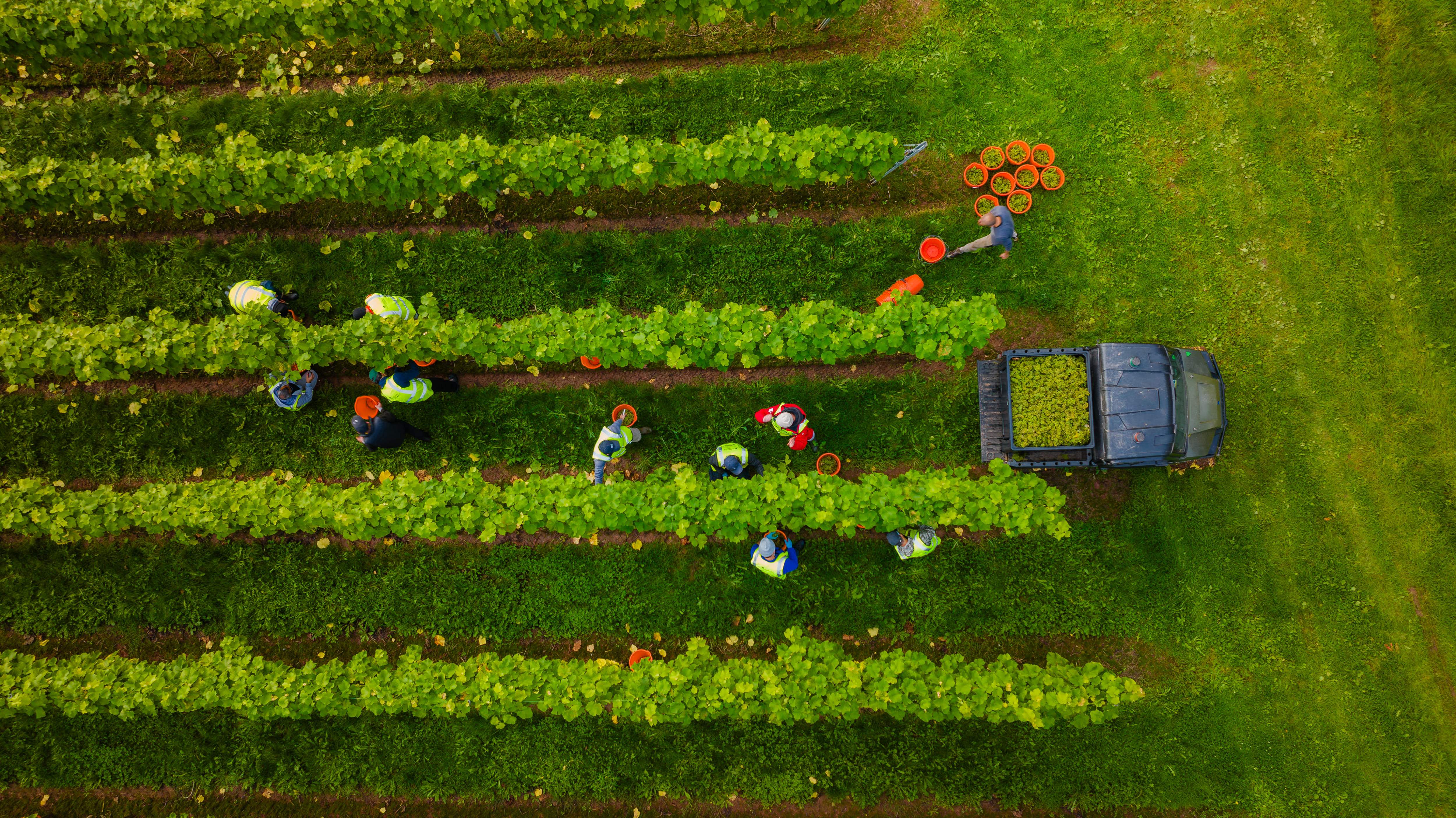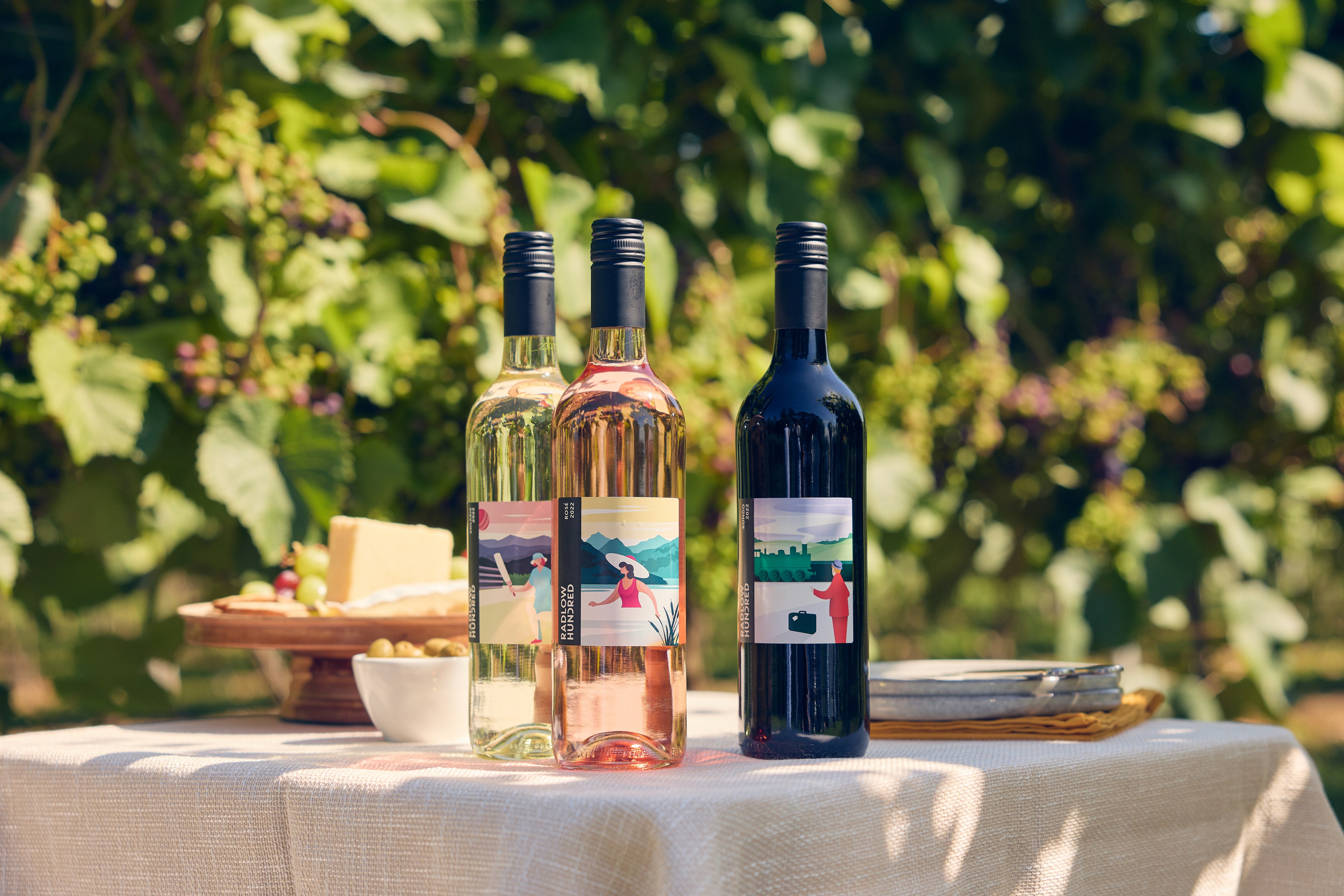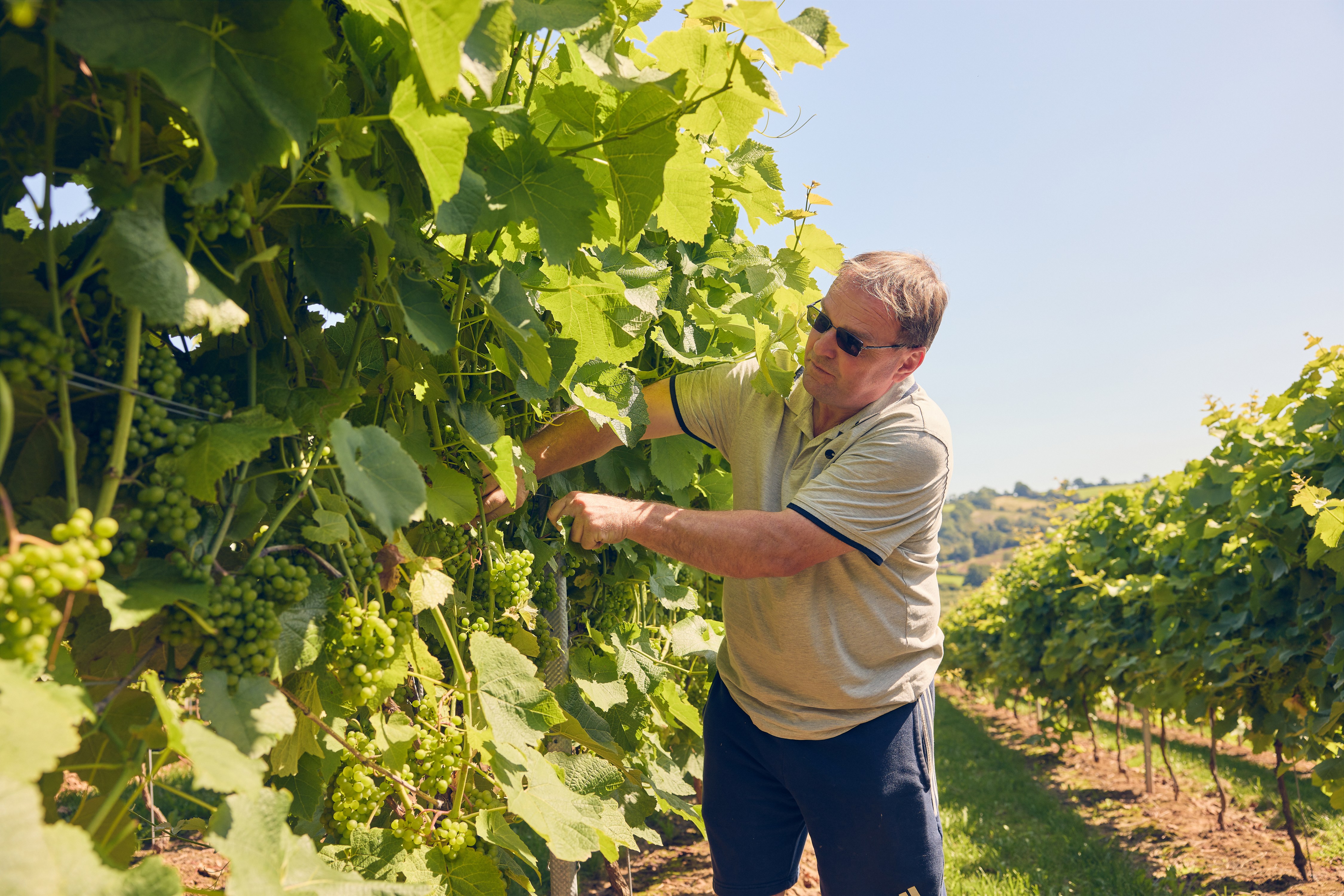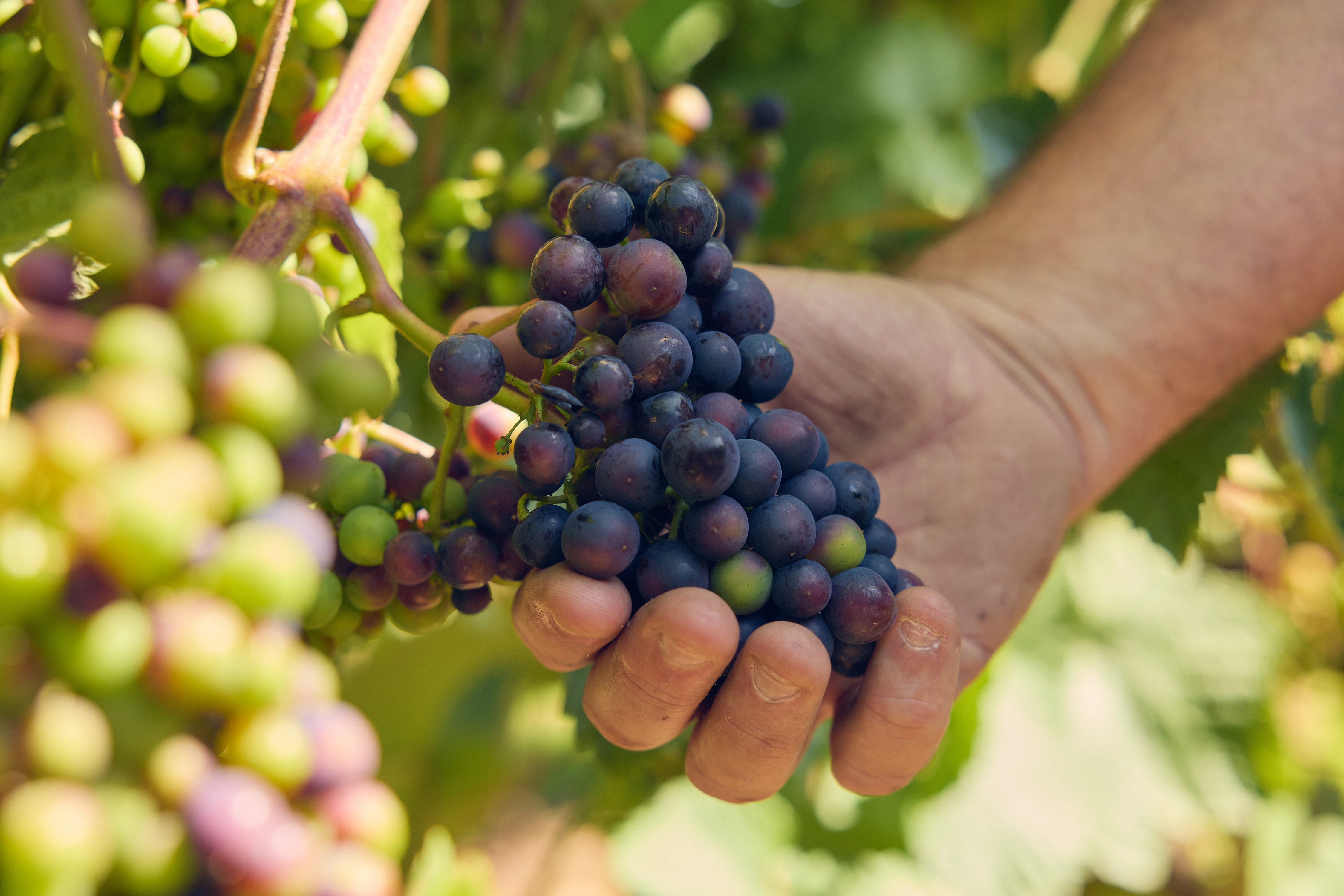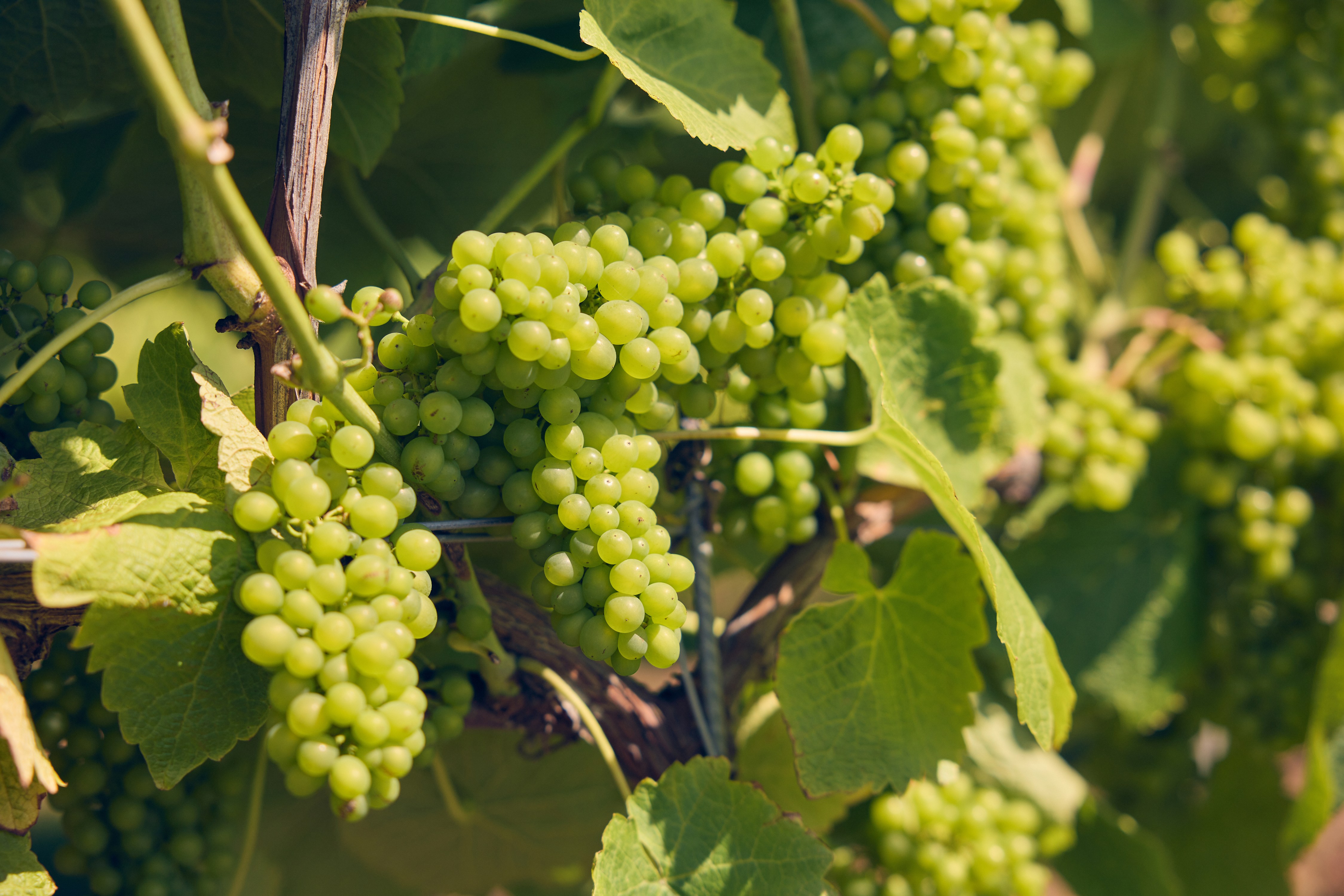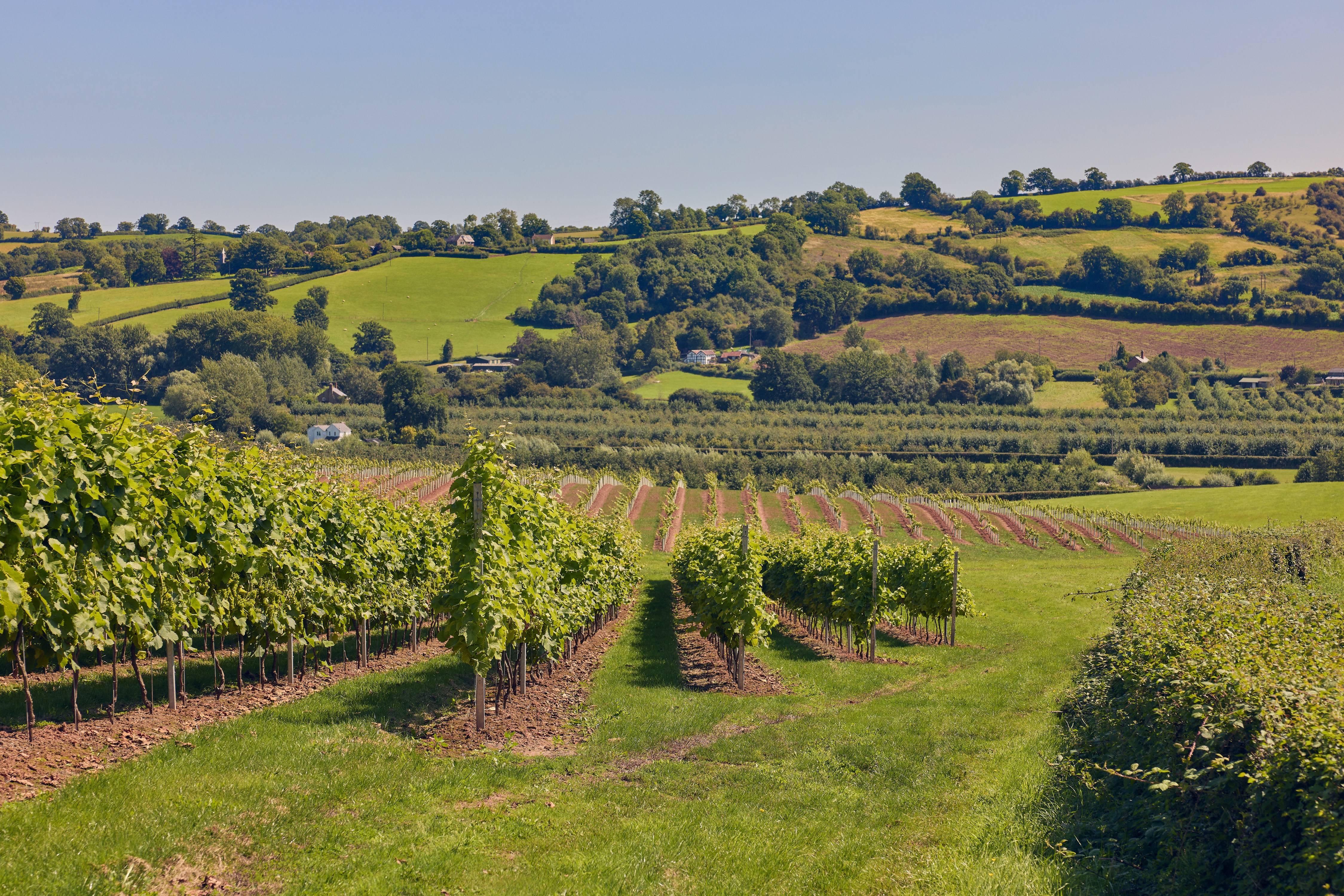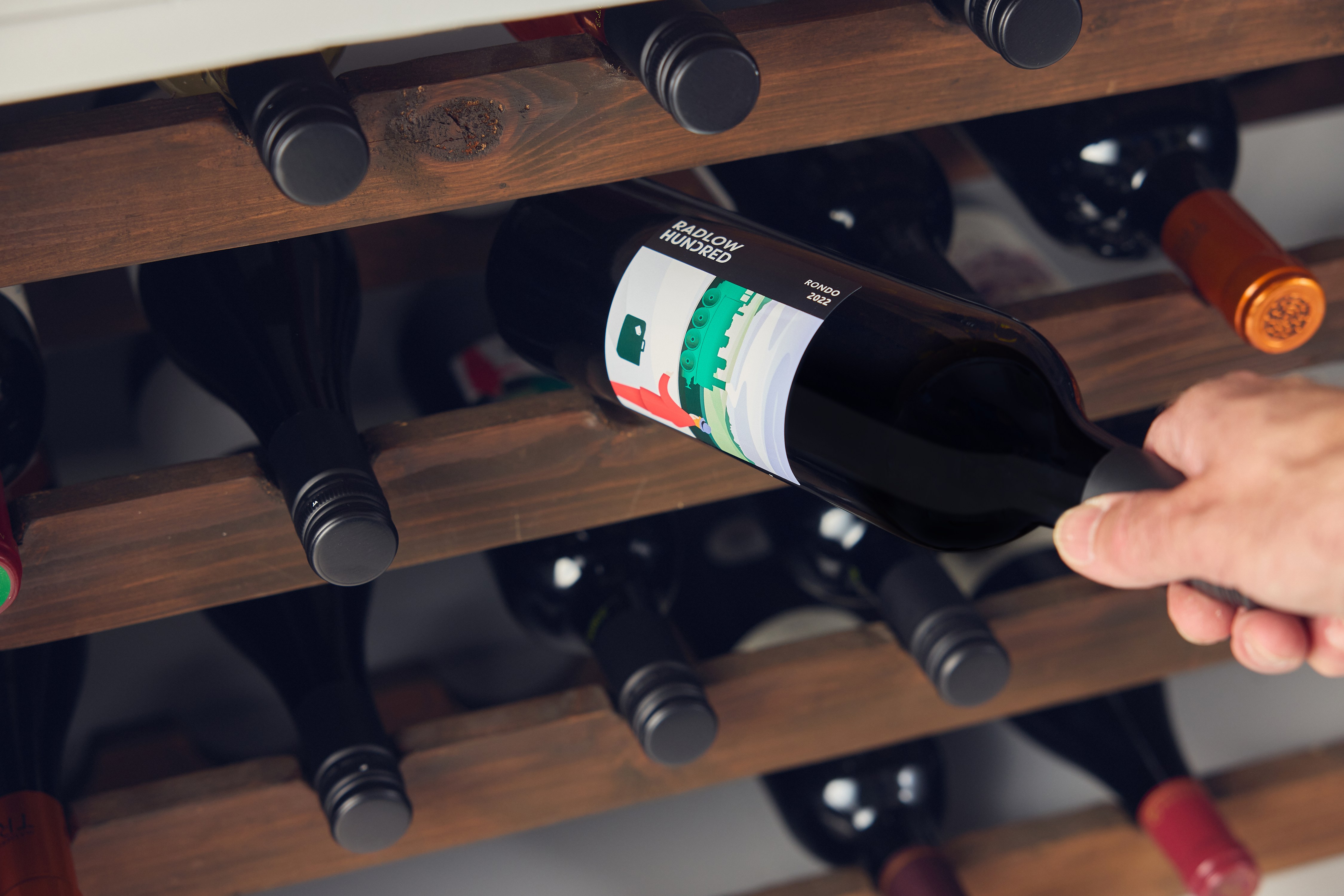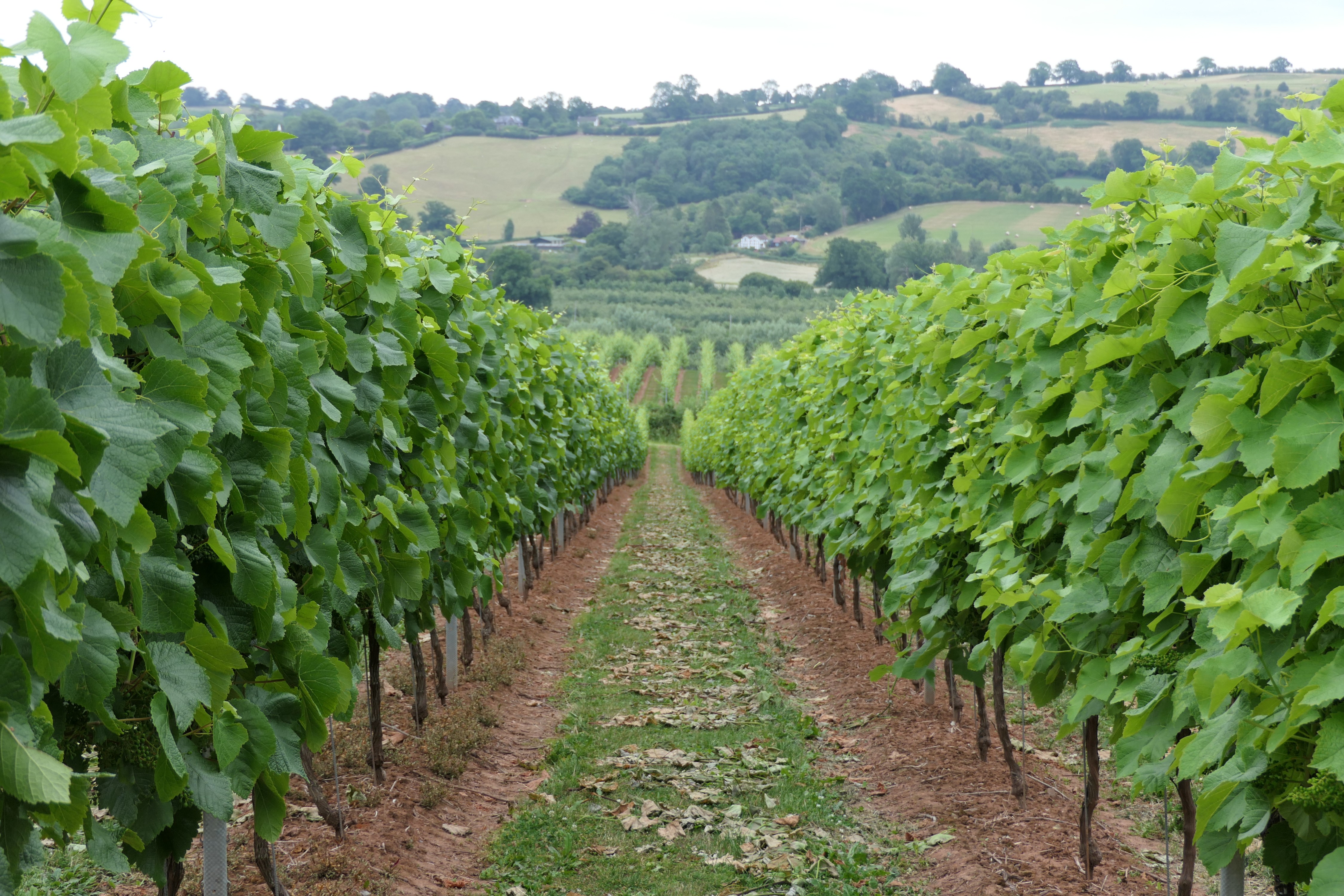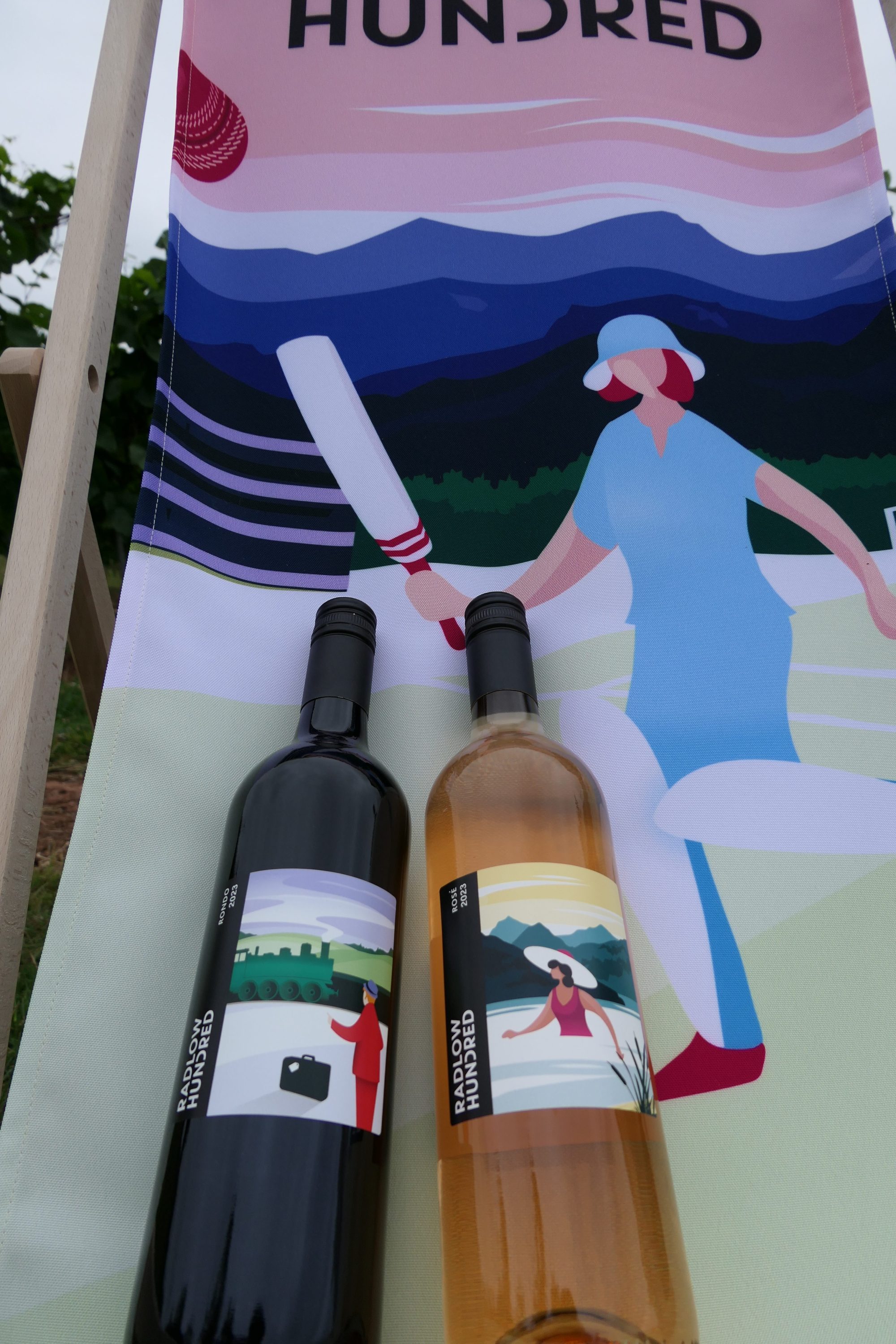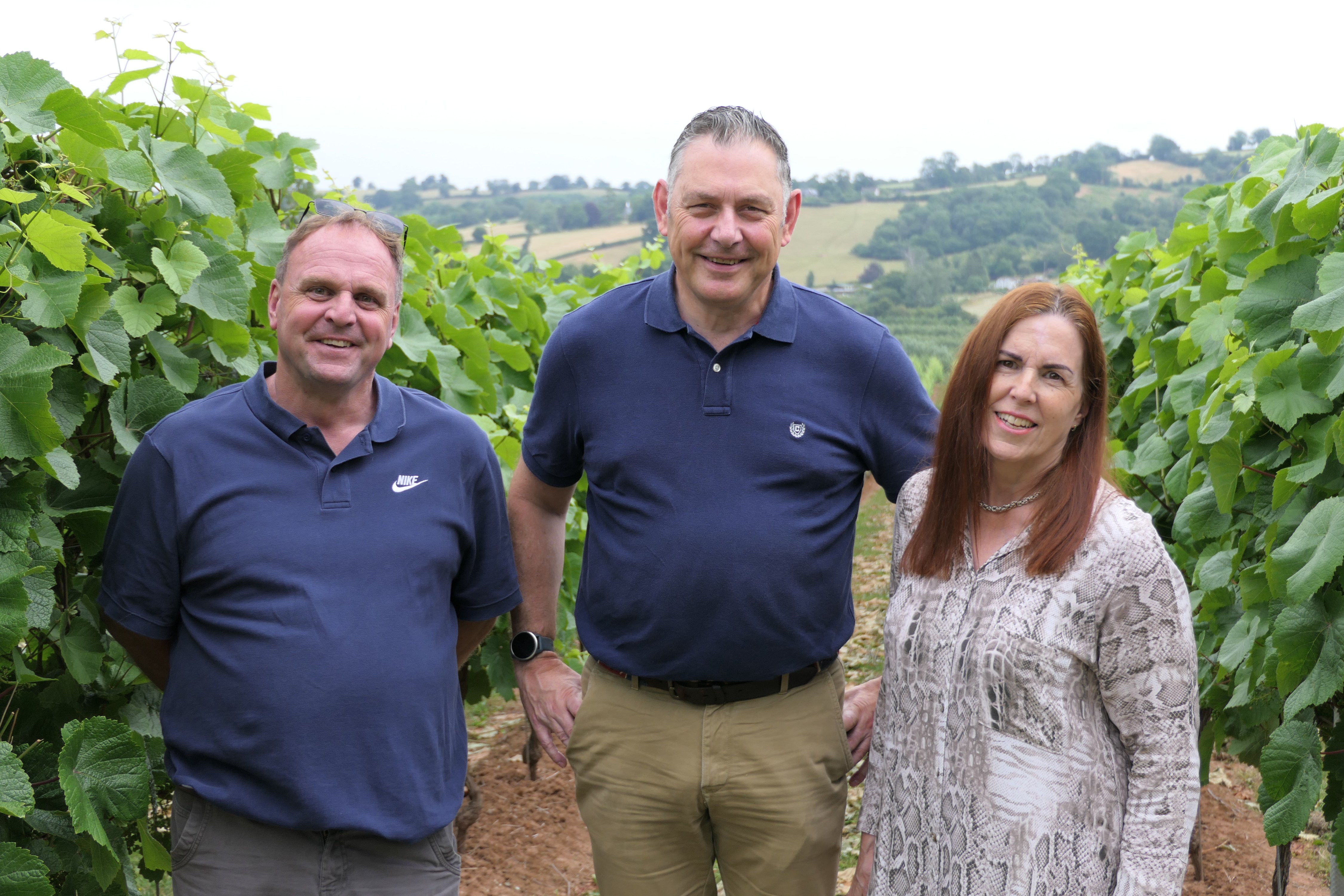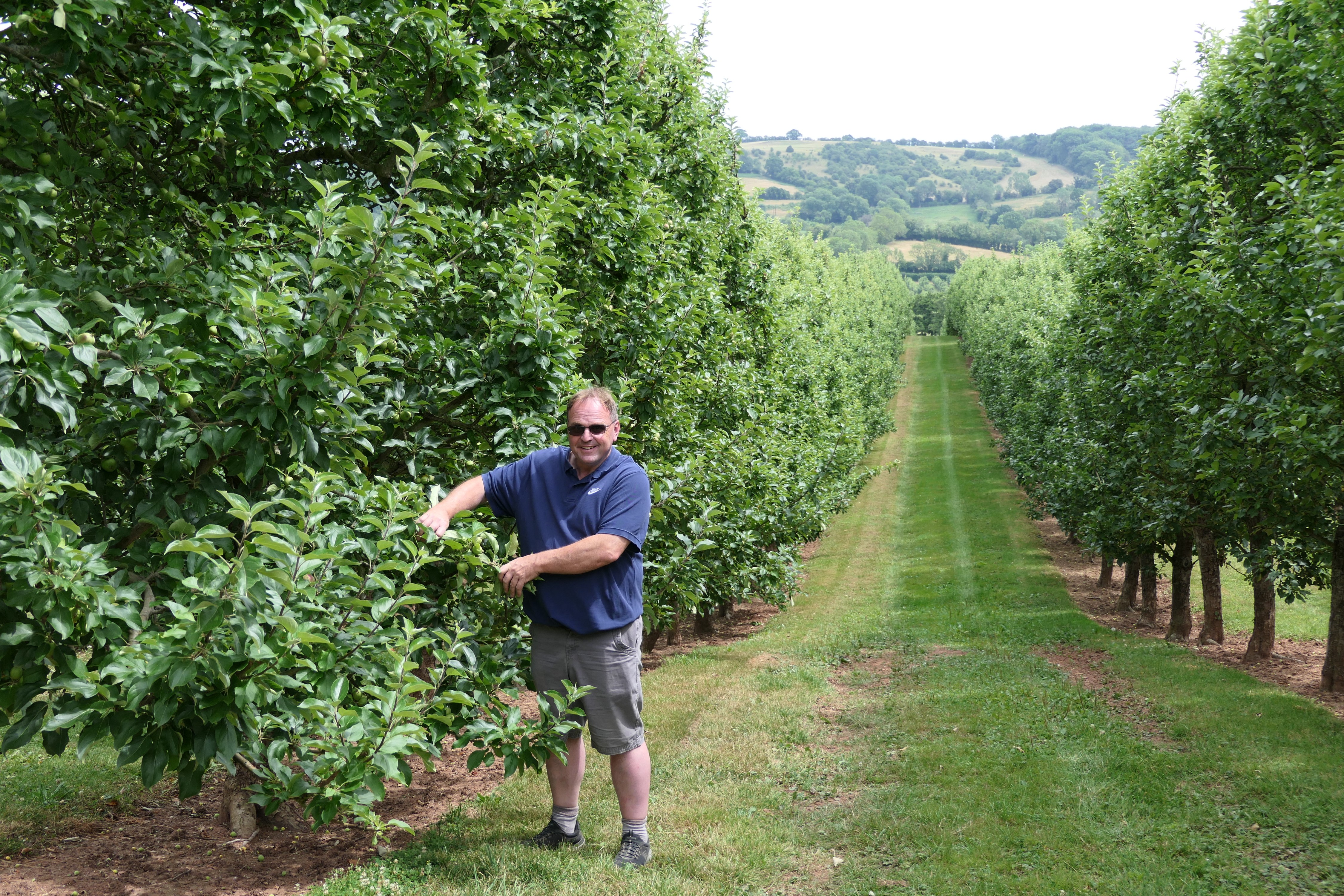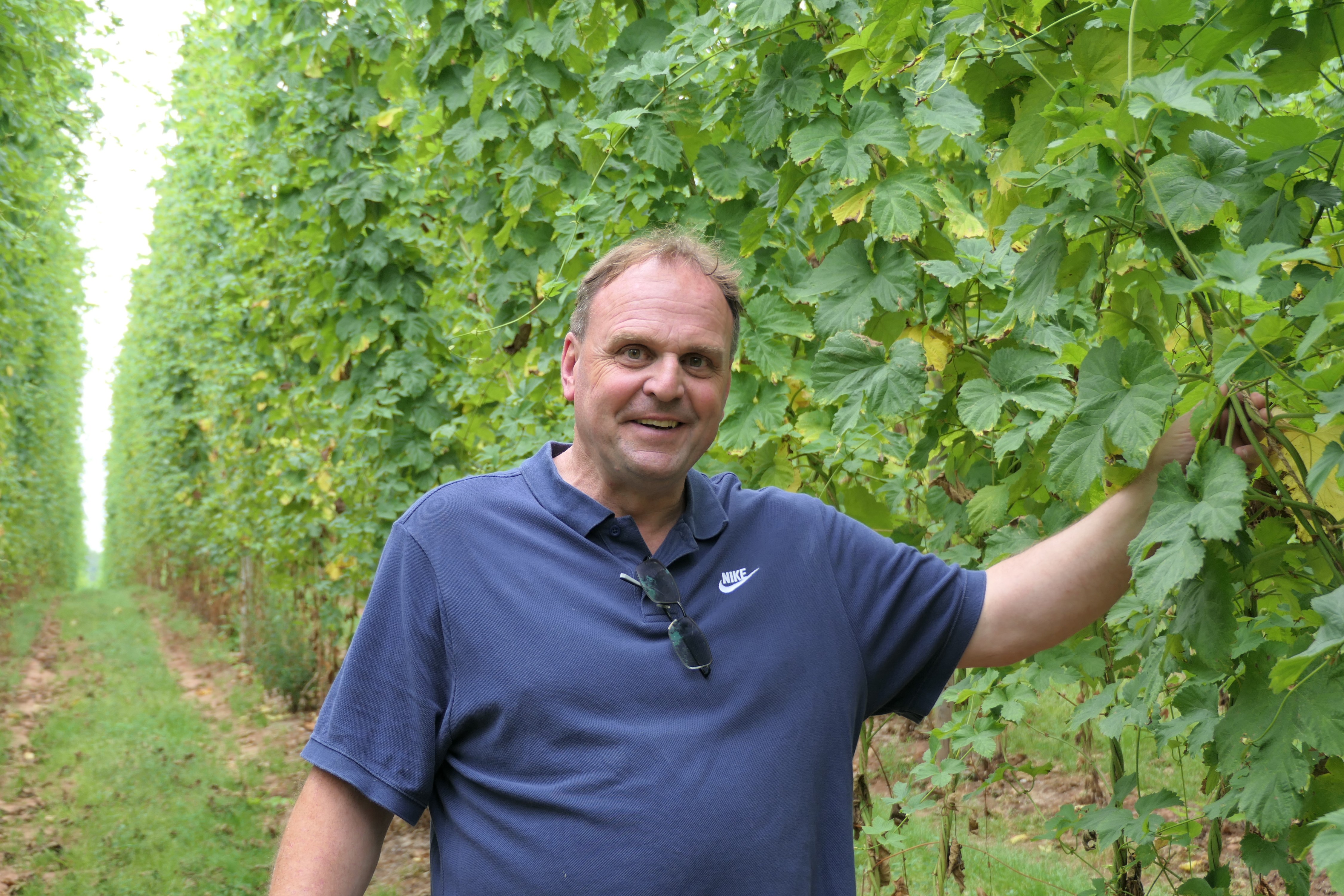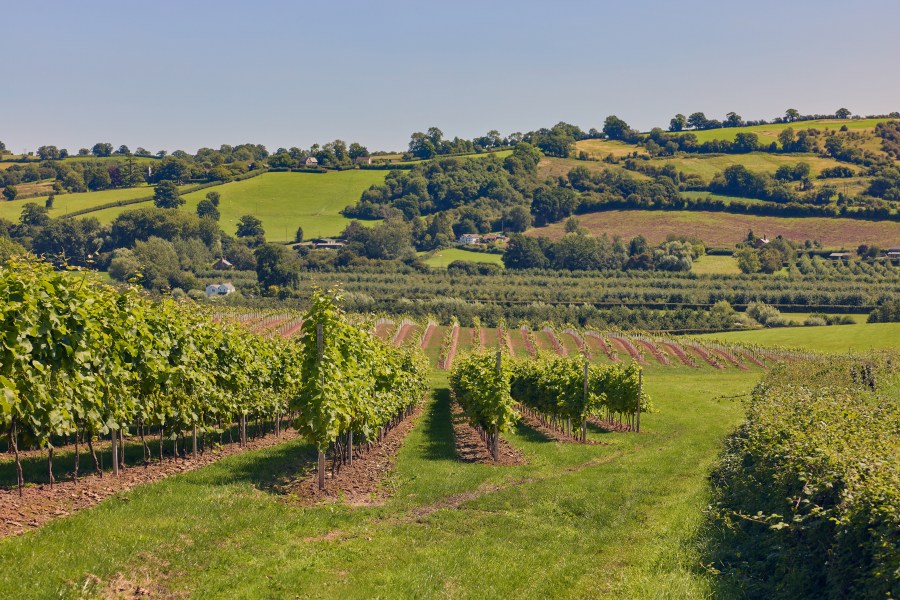Bishops Frome, Herefordshire is within easy reach of both the Malvern Hills and the Wye Valley. This unique and beautiful location is home to wine brand Radlow Hundred.
The land on which the vines are planted is situated within the Radlow Hundred which was recorded in the Domesday Book and Susan Vaughan and her brother Rob Hancocks are the eighth generation to farm this land.
The farm has both hop gardens and cider apple orchards that have been cultivated for generations and now there is also a vineyard planted on a south east facing slope. “There has been a change in farming and a change in climate and we have been thinking about our family and what they will be growing in the future so about five years ago we decided to plant vines,” said Susan. With so much history on this land planting vines is also about securing the future, “who knows there may be 100 acres of vines here one day” Susan added with a smile.
In 2020, Rondo and Solaris were the first varieties planted on this ancient land. There was much to take into consideration when selecting vines for the site. “We chose these varieties because they are hardy grapes and a little bit different,” said Susan. “We make wines that we want to drink at home,” she added. It is clear that the ethos at Radlow Hundred is based on achieving the very best that is possible from the land and showcasing this.
With that in mind the focus is on producing still wines from the grapes. There are three wines that are produced. With a white, rosé and red wine Radlow Hundred have much to offer both the on trade and off trade. “We felt that we didn’t want to make sparkling wine as there are already a number of established brands and producing still single variety wines from Herefordshire gives us a point of difference,” said Susan with conviction. The vineyard does not have a cellar door “where possible we try to sell our wine to our cider customers,” said Susan. “All our cider is pip to pint within five miles and so is very sustainable and now we have wines to add to the portfolio,” she added.
The first full harvest of the Rondo and Solaris took place in 2023 with 6,000 bottles produced. In May 2023, Bacchus was planted on the site, which will be grown under contract for another winemaker.
As the team at Radlow Hundred already produce award winning single estate cider under the brand names Celtic Marches and Pulp Cider the team took a decision to trust Halfpenny Green with the winemaking. As is true for so many vineyards, Radlow Hundred were supported in their early years by the late Martin Vickers. “He freely gave of his time to help us. Without his kindness and support we would not have got this venture off the ground,” said Susan the gratitude echoing in her voice. “He really gave me guidance and encouragement,” said Rob fondly.
The wines are sold online and through wholesalers, distributors and trade shows. “It is hard to get sales, and we need to get support from government to help the industry grow and get the public buying English and Welsh wine,” said Susan. “With the cider industry you have the big boys and then you have those in the middle which is where we sit and then you have those that make and sell cider on a really small scale. Wine has a similar structure. There are some really big producers and we sit below that. We are trying to bring all our commercial experience gained in the cider industry to help commercial sales of our wines. Everyone helps the market because the more the public become acquainted with good English and Welsh wine the better it is for everyone,” said Darren Morris, Director at Radlow Hundred.
The wine branding at Radlow Hundred is inspired by the Art Deco period and to say that it is eye catching is simply not enough. “The era allows for clean colourful imagery,” said Susan. The images that represent the wines are quite literally captivating but there are hidden stories behind each image that link to the local area.
The single variety Red is made from 100% Rondo. With 12% alcohol and using a small amount of gentle oak, it is an attractive deep colour and gives intense red fruits such as cherry and plum on the palette. The label was inspired by the arrival of the first train to the local village of Bromyard in 1877. The white wine is made with 100% Solaris and the label celebrates the summer of 1926 when ladies playing cricket in the village of Colwall near Malvern led to the formation of the Women’s Cricket Association. The Rosé is a blend of Solaris and Rondo and the label celebrates a time when swimming in the River Wye was a popular summer pastime.
With a red, a white and rosé it is possible for Radlow Hundred wines to sit on the table from starter through to dessert (the rosé pairing especially well with white chocolate and raspberry). “Our wine is stocked in a couple of local restaurants and they have conducted food pairing evenings using our wine,” said Susan. “One local restaurant paired the Rondo with Hereford beef and the rosé with a rhubarb pudding, which worked really well” added Darren. This comment highlights how the Radlow Hundred wines allow for local wines to be paired with local produce.
By linking the labels to lesser known events in the surrounding areas Radlow Hundred have added an extra layer to the wine experience. “We wanted to invite questions about the wine from the label,” said Susan. “Through our history with cider and cider making we know that people often buy with their eyes,” added Darren.
The labels are fresh but not frivolous and therefore have a broad appeal but also provide a talking point with the wines having a retail price of between £15-£18 their versatility with pairing options and their strong branding it is clear that the team at Radlow Hundred have put a lot of thought into their target audience and drawn on their experience and local knowledge to do so.
The hop gardens have two traditional varieties Fuggles and Goldings but changing tastes and the pandemic have put hop growing under significant pressure in recent years. Growing hops is also notoriously difficult and I ask Rob what skills he has been able to transfer? “You can’t turn your back on hops for a minute, a few days and everything changes, this is also true in the vineyard,” said Rob with a smile. “Although the difference is that the hops suffer stress a lot more than the vines both in terms of heat and lack of water, we also have to chase aphids and red spider mite in the hops but we have not had any SWD or cutworms in the vineyard to date. The hop industry is very small and this creates problems with financial investment and getting approval for new sprays.” Rob explained.
The soil type is fertile with silty soil over shale which is known as Bromyard clay “the Rondo vines particularly do seem to be quite vigorous,” said Rob but his attention to detail is evident in the vineyard with the rows being so neat that there are no signs of this tendency to over vigour. “The soil is quite balanced but we do find that across all the crops in the valley we can be a bit short of lime,” Rob added.
Rob currently undertakes all the vineyard tasks by hand and even during our conversation his attention is drawn to any stray leaves that he finds. In the coming years Rob admits that a trimmer may be on his shopping list. With a humility that is rare Rob freely admits that he wants to develop his skill set and that crop thinning and canopy management are areas that he wants to improve.
“Thinning of crops is not something that we do in cider growing, it is more common when you supply apples to supermarkets but a cider orchard will shed its apples if it is carrying too much crop so I will work on this aspect of the vineyard.”
Although Rob is extremely skilled in cultivating both hops and apples it is interesting that he was still keen to take advice on the best place to plant the vines and how to get the best from them. After soil analysis a 2.5 hectare site was selected “it is half way down the valley so it cuts the wind out and is not down at the bottom by the river so it is protected from the frost level. It is also slightly warmer than the surrounding land area,” said Rob. “We used to make hay on these fields and the hay on these banks was ready a few days earlier than the other fields,” he added showing his deep connection to the land.
Vineworks and Halfpenny were both on hand to offer advice about the planting system and Rob is very clear that he believes getting the system right from the very beginning is the crucial step to establishing any successful crop. All the steps at Radlow Hundred from site selection to varietal choice have been taken with the greatest care with Rob and Susan relying on the help of experts despite their own experience of the fruit and hop industries.
The vines are planted on a slightly wider spacing than the hops and this allows for machinery to be shared between the hops, orchards and the vineyard. At Radlow Hundred there is an unusual harmony across the businesses and this is reflected bby the fact that the conversation moves seamlessly between all the produce.
To date there have been no real problems with birds and Rob pointed out that although the hops and the orchards do suffer from damage owing to deer populations this has not been seen in the vineyard. Possibly since the hop gardens and the orchards have been well established the deer and the birds have not found it necessary to venture into the young vineyard.
Although 2024 was a high pressure year for disease Rob explained that they have all the equipment and programmes in place to manage both powdery and downy mildew. “At harvest we are pulled in several directions and that is when we need to be extra vigilant to prevent Botrytis.”
The talk of harvest reminds Rob what a busy time that is. “The grape harvest does not coincide with the hop gathering but it does clash with the apple harvest. There is no way to avoid that,” said Rob a note of acceptance in his voice. To keep the harvest as simple as possible agency pickers are supplied to the vineyard. “Unlike the apples which are a staged harvest, in the vineyard when the grapes are ready they are harvested as quickly and cleanly as possible,” said Darren.
There are many suggestions as to the meaning of the term Hundred as used in the Domesday Book but one of the central points to all the theories is that the land was productive. With a millennium of productive land beneath their feet it is wonderful to see that the team at Radlow Hundred are future proofing the productivity of this same land for future generations.
